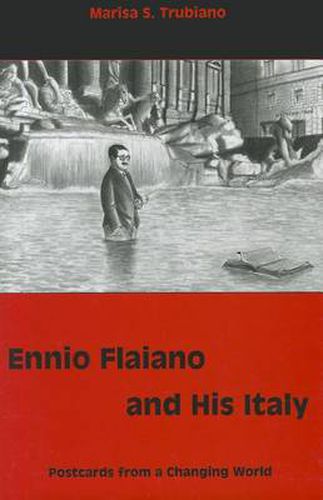Readings Newsletter
Become a Readings Member to make your shopping experience even easier.
Sign in or sign up for free!
You’re not far away from qualifying for FREE standard shipping within Australia
You’ve qualified for FREE standard shipping within Australia
The cart is loading…






While film scholars and enthusiasts all over the world are familiar with Federico Fellini’s important contributions to postwar Italian and European cinema it is much less known, especially outside of Italy, that such success has much to do with the writings of his fifteen-year collaborator and scriptwriter, Ennio Flaiano (1910-72), journalist, novelist, dramatist, and theater and film critic. This book identifies the ways in which Flaiano’s distinctive travel diary ‘satirically registering the transformative journey from provincial Italian to global citizen’ captured and shaped the changing tastes of an entire generation of Italians on the film set, in the newspaper office and on the street. The book highlights Flaiano’s uneven yet steadily developing anticolonialist stance, his emerging postmodern autobiography, and his interrogation of notions of regional, national and cultural superiority.
$9.00 standard shipping within Australia
FREE standard shipping within Australia for orders over $100.00
Express & International shipping calculated at checkout
While film scholars and enthusiasts all over the world are familiar with Federico Fellini’s important contributions to postwar Italian and European cinema it is much less known, especially outside of Italy, that such success has much to do with the writings of his fifteen-year collaborator and scriptwriter, Ennio Flaiano (1910-72), journalist, novelist, dramatist, and theater and film critic. This book identifies the ways in which Flaiano’s distinctive travel diary ‘satirically registering the transformative journey from provincial Italian to global citizen’ captured and shaped the changing tastes of an entire generation of Italians on the film set, in the newspaper office and on the street. The book highlights Flaiano’s uneven yet steadily developing anticolonialist stance, his emerging postmodern autobiography, and his interrogation of notions of regional, national and cultural superiority.